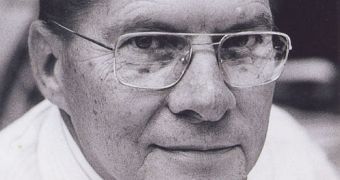The engineer who invented the wireless TV remote control, back in 1955, died of natural causes on May 20, 2012, at the age of 95. Eugene Polley is described by his son, Eugene J. Polley Jr., as a constant tinkerer, always thinking about and improving on various devices.
Over the course of his lifetime, Polley contributed significantly to the development and improvement of the radars used during World War II, and developed the push-button radio used in cars. He passed away on Sunday, at his home in west Downers Grove, Illinois.
He worked at Zenith Electronics for 47 years, after the Great Depression forced him to interrupt his college studies, and seek employment. He moved from the stockroom to the parts department, where he compiled the company's first-ever catalog.
After transferring to the engineering department, he began a very long career of inventing and improving stuff. “When he was younger he had access to a washing machine and proceeded to take it apart. He always wanted to know how things worked,” Polley Jr. says.
The inventor also worked on a precursor of modern-day DVD, the video disk, in addition to collaborating with other Zenith engineers on improving American radars during the war. The efforts were part of the company's pledge to help the US Department of Defense.
Throughout his inventing days, Polley's work earned 18 patents in the United States. His Flash-Matic remote control set the stage for the development of modern remotes, which are now standard accessories on all TV sets, and are used for a wide variety of other consumer electronics as well.
Even stereo systems, homes and computers now have remote controls. Some of these devices have as many as 50 buttons, and can be used to control multiple pieces of equipment.
“He taught me the importance of working hard. He had an innate sense of form and function which I never had. it was amazing,” his son says, quoted by Northwestern University's MEDILL news service.

 14 DAY TRIAL //
14 DAY TRIAL //